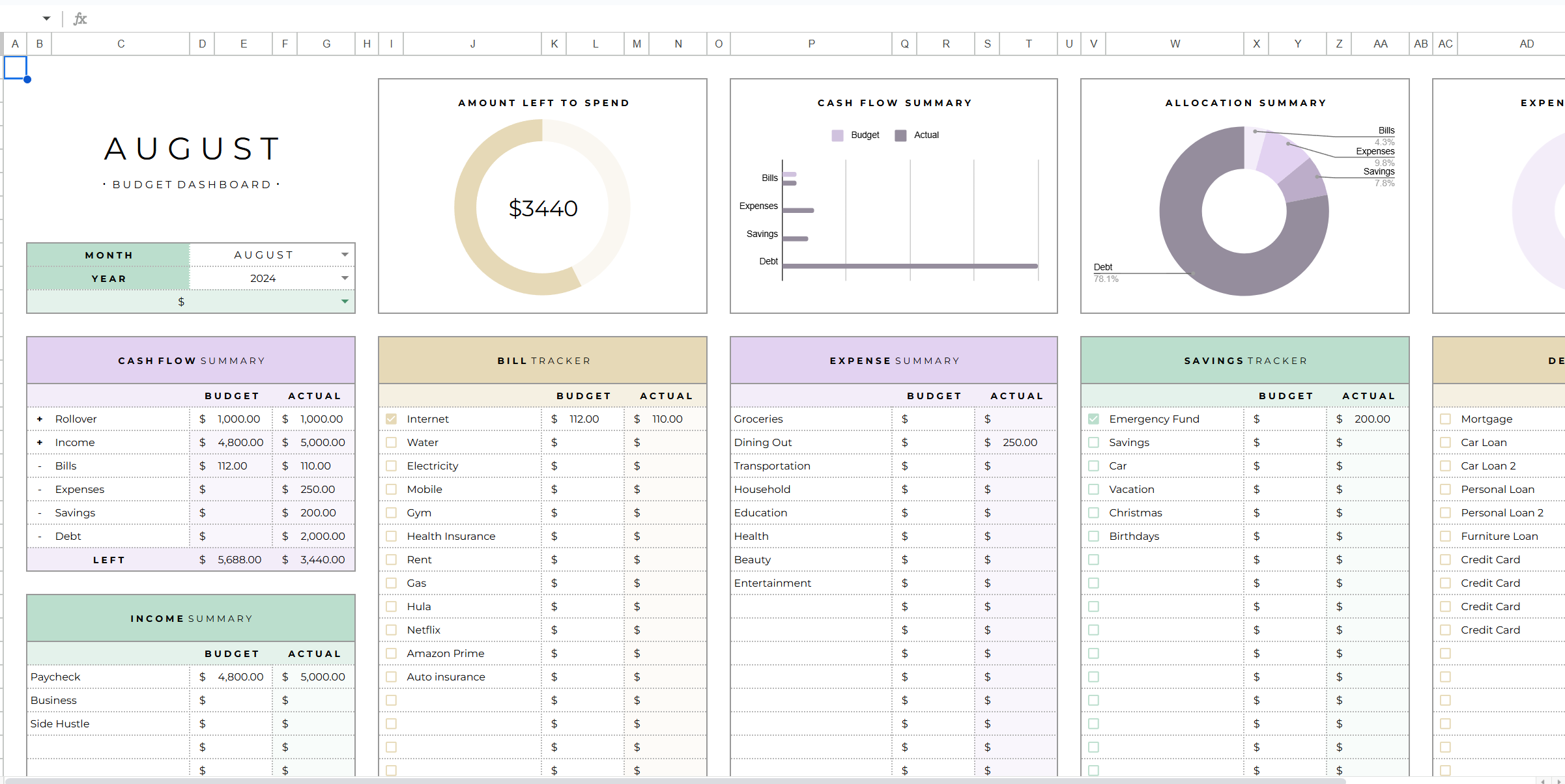5 Budgeting Mistakes and How to Fix Them
Creating a budget can be challenging if you haven’t completed a money audit. A money audit simply means tracking your spending. You might have a general idea that you spend too much on coffee or dining out, but do you know the exact amount? Without knowing your real numbers, you’re more likely to overspend in one category and end up borrowing from another, throwing your budget off track. To help you avoid common pitfalls, here are a few budgeting mistakes and how to fix them.

1. Estimating Costs Instead of Tracking Actual Expenses
Mistake: Many people create a budget by guessing how much they spend on categories like groceries, dining out, or utilities rather than tracking their real expenses. This can lead to under-budgeting in some areas and overspending in others.
Fix: Start tracking your expenses for at least a month using a budgeting app, spreadsheet, or even pen and paper. This will give you a clear picture of your spending habits and help you create a more accurate budget.
2. Forgetting to Account for All Your Expenses
Mistake: It’s easy to overlook irregular or small expenses, such as annual subscriptions, vehicle registration fees, or even holiday gifts. These “forgotten” expenses can throw your budget off track.
Fix: Review past bank statements and receipts to identify irregular expenses. Set up sinking funds for predictable, non-monthly expenses and include miscellaneous spending in your budget as a cushion.

3. Being Overly Restrictive and Not Allowing for Any Fun
Mistake: While it’s great to be disciplined, cutting out all entertainment, dining out, or personal spending can make budgeting feel like a punishment. This often leads to burnout and binge-spending.
Fix: Allocate a reasonable amount for fun or personal spending. Even a small amount designated for occasional treats can help you stick to your budget long-term without feeling deprived.
4. Leaving Savings Out of Your Budget
Mistake: Some people focus only on covering expenses and debt payments, neglecting savings altogether. This makes it difficult to build financial security.
Fix: Treat savings as a non-negotiable expense. Automate transfers to a savings account or use the “pay yourself first” method, setting aside money for savings before covering other expenses.
5. Not Having an Emergency Fund
Mistake: Unexpected expenses—like car repairs or medical bills—can derail your budget and force you into debt.
Fix: Start by saving a small emergency fund, even if it’s just $500 to $1,000. Once your debt is under control, aim to build three to six months’ worth of expenses. Keep this money in a separate, easily accessible savings account.

I hope you can correct any mistakes that you might be seeing in your budget. It can take up to 3 months to get your budget on track. Remember your budget should be flexible and unique to your lifestyle. A “restrictive” budget does not have any room for mistakes which can cause feelings of anxiety and depression. This will lead you to give up. So, don’t abandon your budget, make it work for you.
Make sure to read my blog Beyond the Basics: 5 Surprising Ways Budgeting Can Transform Your Life (Not Just Your Wallet).
Check out my Google Sheet Budget Template here.





Leave a Reply